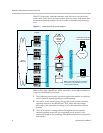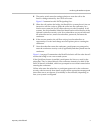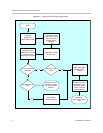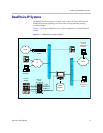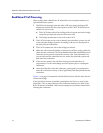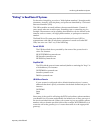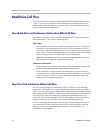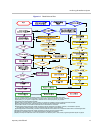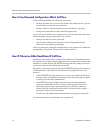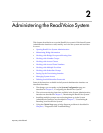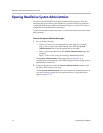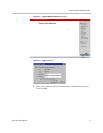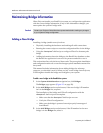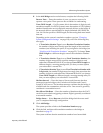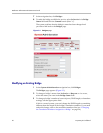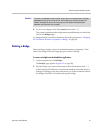
ReadiVoice Administration & Maintenance Guide
14 Proprietary & Confidential
How A Two-Password Configuration Affects Call Flow
In the traditional ReadiVoice call flows, the system:
• Prompts all callers for an access code (unless the subscriber has a private
access number) to identify the conference.
• Prompts callers to identify themselves as subscribers by pressing *.
• Prompts the subscribers for their subscriber password.
In two-password call flows, no separate access code is used; both subscribers
and participants are given passwords. The system:
• Prompts all callers for their password.
• Uses it both to identify the conference and to distinguish between
subscribers and ordinary participants.
With two passwords, subscriber identification occurs without any additional
prompting by the system. This provides a shorter call flow.
How IP Tributaries Affect ReadiVoice-IP Call Flow
ReadiVoice-IP systems can be configured to enable the IP Tributaries feature.
To use this feature, callers must be authenticated by some means outside of the
ReadiVoice system, and the SIP
INVITE
message that they send to access the
system must include the identifying information.
Each piece of information contained in the SIP
INVITE
message takes the place
of information that the caller would otherwise be prompted to enter. For
instance:
• If the SIP
INVITE
message includes an access code (traditional call flow),
then the system can identify the conference from the invite and only needs
to prompt for subscriber identification.
• If the
INVITE
message includes both the access code and subscriber
password (traditional call flow) or either a participant password or a
subscriber password (two-password call flow), then the system can
identify both the conference and the caller’s role and doesn’t need to
prompt the caller for any information.
For security, the authentication mechanism can encrypt the passwords.
For more information on this feature, see Appendix D.



